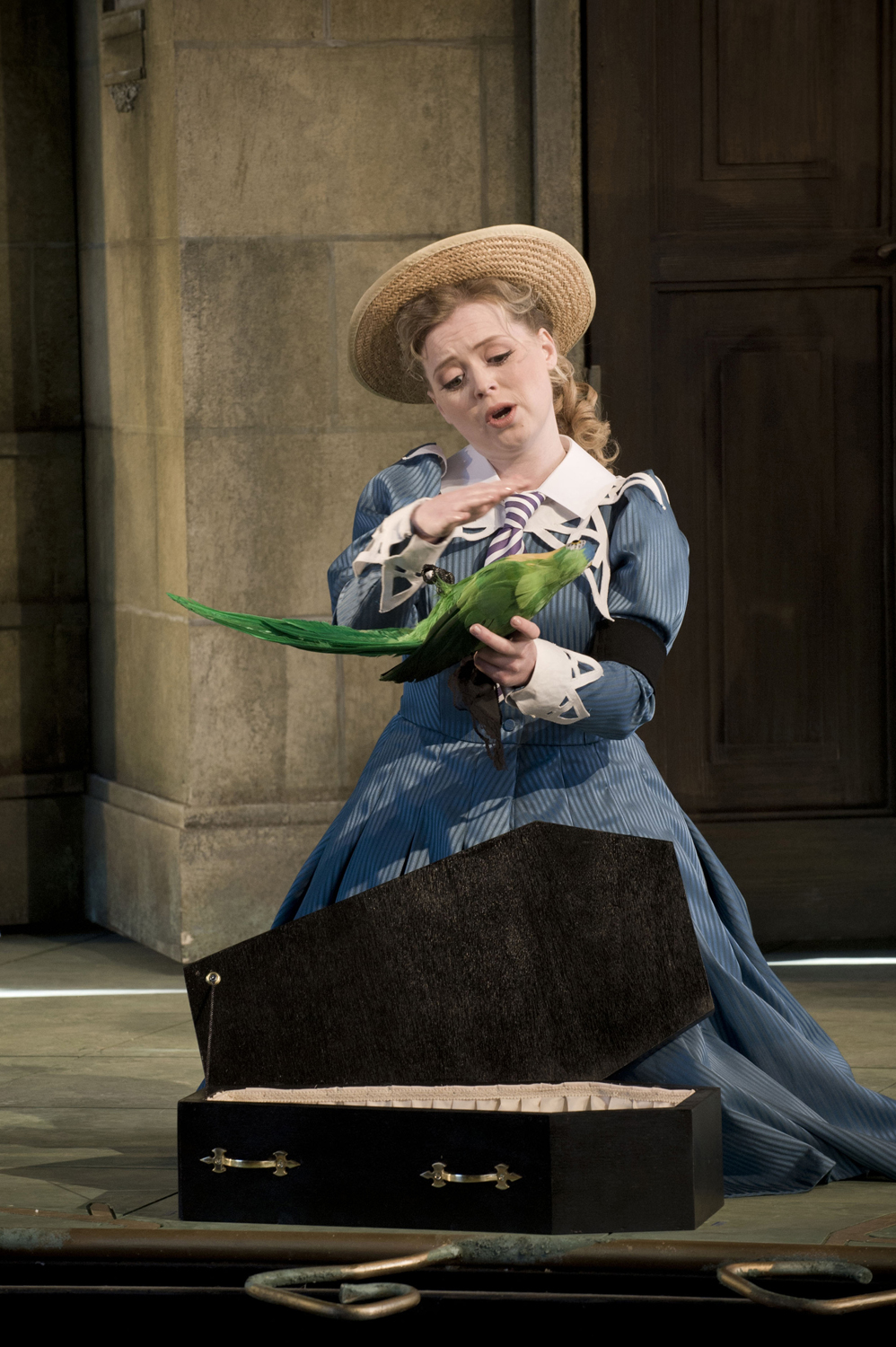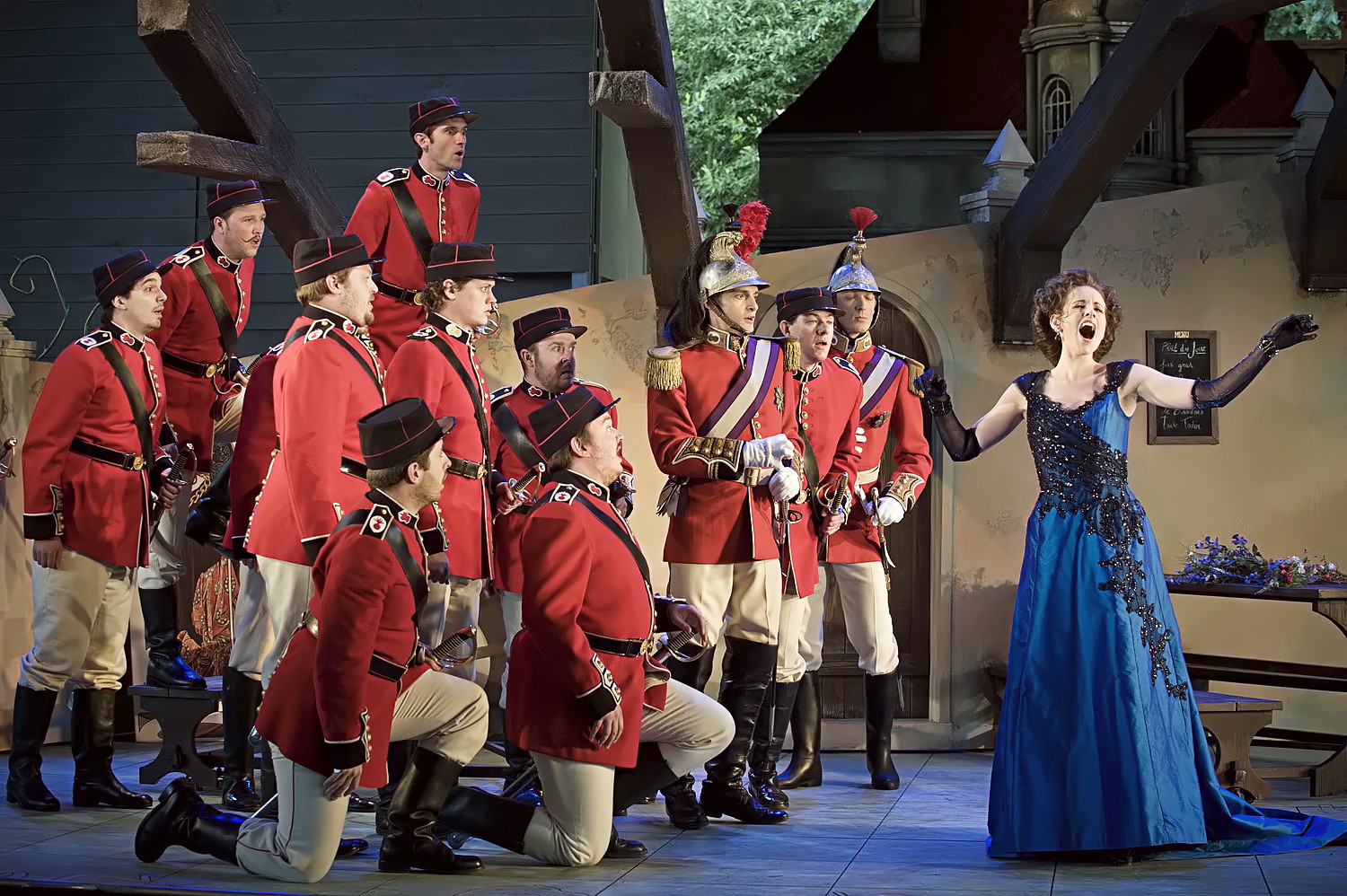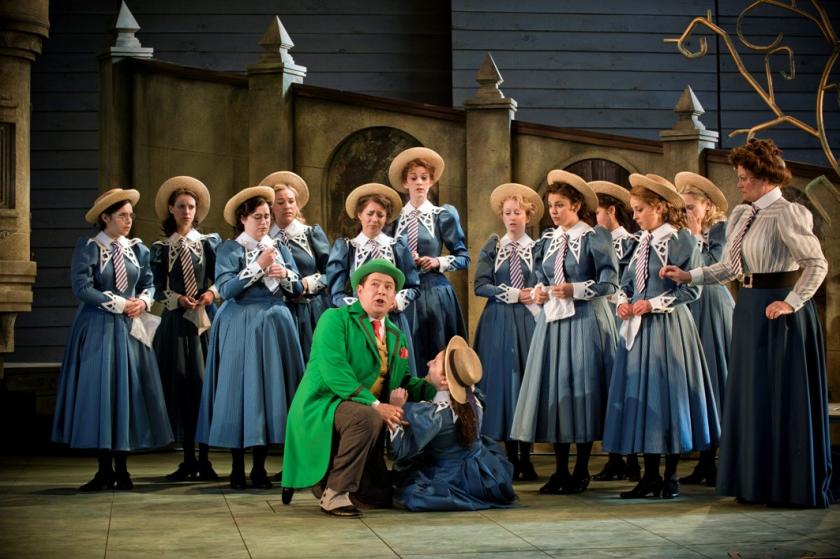How delicious that Garsington Opera has turned to Offenbach. The main impetus for this cheering development, taken up by Artistic Director Douglas Boyd, is conductor David Parry, who both translates (extremely well) and wields the baton.
Parry was recently legated a set of Offenbach scores gathered by the late Patric Schmid, father of Opera Rara, for a planned recording project spanning extracts from many of the French composer’s lesser-known operettas. Could this open up the prospect of numerous rarities to come? Something to equal Leonard Ingrams’ teasing out of Haydn operas, then rarer Strauss and Rossini; and in the new Boyd era, Vivaldi (L’Incoronazione di Dario, L’Olympiade)? No British companies have the nerve to stage all non-repertoire fare, like Wexford: but at least Garsington has acted as pioneer (neglected Schumann, Tchaikovsky, Martinů).
 One applauds the intention. So why – despite a “dead parrot” sketch, quite hilariously staged - does one feel underwhelmed by Martin Duncan’s admittedly hearty, diverting, giggleful production of Vert-Vert (penned 1869 – just before Napoleon III’s permissive France succumbed to Prussia and the Commune interlude)?
One applauds the intention. So why – despite a “dead parrot” sketch, quite hilariously staged - does one feel underwhelmed by Martin Duncan’s admittedly hearty, diverting, giggleful production of Vert-Vert (penned 1869 – just before Napoleon III’s permissive France succumbed to Prussia and the Commune interlude)?
I felt let down because Offenbach means something subtler than this romp-type approach - which gets so many aspects right, but is not sufficiently on target. Half the opera is set in or around a vonvent, and is a limp-ish attempt by librettists Meilhac and Nuitter “and others” – that often fatal phrase – to make a jolly out of chaps in uniform trying to access or abduct their belles (in delightful school uniform: Francis O’Connor’s costumes were simply glorious, and the manoeuvrability of his chateaux and garden walls – well done, the stage crew - make one’s eyes pop out).
There are some wizard performers. You want to wrap up Fflur Wyn (pictured as Mimi above with dead parrot) up and spirit her away – the very point of the opera – whether she’s in blue school lacrosse-stick togs, or kitted out as a tiny scarlet bombardier. Naughty girlie chums Katie Bray (a super mezzo) and Raphaella Papadakis are scrumptious in their opening pranks too. Yvonne Howard is fun as the prim schoolmistress. Yet when Irish mezzo Naomi O’Connell (pictured below) opens her mouth as the popular chanteuse La Corilla, the whole musical experience zooms onto a whole new level. Coloratura to the gills, O’Connell is, inescapably, the big hit of this production.
Yet things are already creaking. The problem actually begins in the pit, where the invaluable Parry, who delivers a spectacularly well-played – and spectacularly long – Overture, then seems to cream it far too often. A lot of noise is generated, not always to best effect. Offenbach needs to be played à point, avec delicatesse. It’s all about refinement – not just bashing things out like so-so Gilbert & Sullivan. I’ve heard subtler, pointilliste Offenbach from a dinky ensemble trotting out a touring (and much funnier) Robinson Crusoe. Imagine playing the Tales of Hoffmann Barcarolle con fortezza.
 Only intermittently – two super flutes, two bassoons, an engaging clarinet obbligato for Vert-Vert – do we get the kind of lucidity and poise that proves the French composer so uniquely, and deucedly, clever.
Only intermittently – two super flutes, two bassoons, an engaging clarinet obbligato for Vert-Vert – do we get the kind of lucidity and poise that proves the French composer so uniquely, and deucedly, clever.
The disaster is the choreography. It’s difficult to spot where Duncan’s role ends and young, though not inexperienced, choreographer Ewan Jones takes over, but much of the dance – more jigging - is weak, wet, limp, inedequately rehearsed and polished, short on real ideas. Too much like a school production, or badly prepared Rossini.
This staging could have been so much better than it proves: not by changing it all, but by effecting what the cast actually does, better. Vocally the chaps are all good. When you have old pros like Mark Wilde (Binet the bossy, huffy-puffy gardener) and Geoffrey Dolton (terrific as ever, as Balidoro, the dancing master) it’s sad we don’t hear more of them actually singing. They provide the best buffoonery. Dutch-born baritone Quirijn de Lang and his Chevalier chum, tenor Andrew Glover, score especially in their chaps’ duet, which Parry shapes beautifully.
Robert Murray proves he can act decently in the hapless title role (his appellation, Vert-Vert, was originally the name of the schoolgirls’ deceased pet parrot), achieving a weedy demeanour perfect for the role, but occasionally blossoming into beefy manliness. In some ways, with his gorgeous tenor, Murray holds things together. Oxford Lieder Young Artists Winner Alessandro Fischer is the other tenor delight of this mixed evening. So with Wilde, who could outdo them both, hovering with shears and plantpots, this time Wormsley really did offer us The Three Tenors.














Add comment